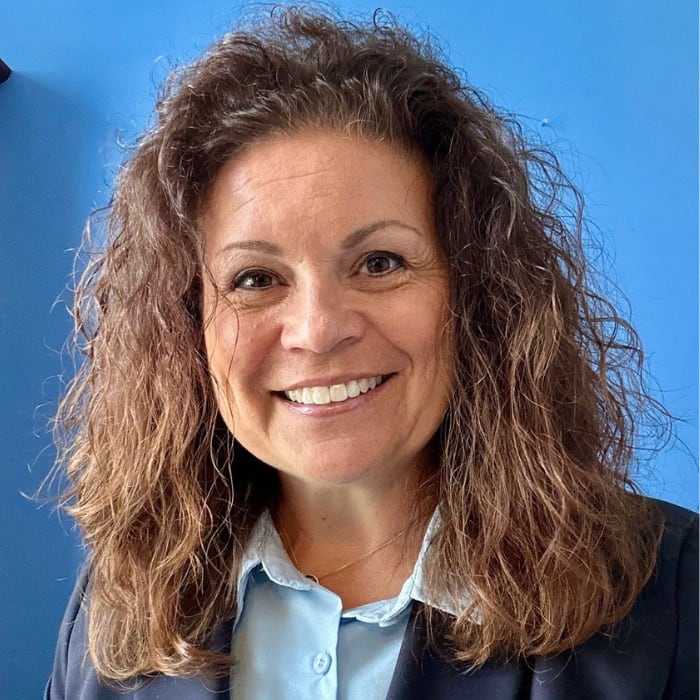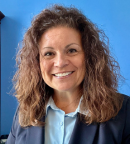
Amy Jost, Clinical Teams Content Specialist at the American Academy of Ophthalmic Professionals (AAOP), shares how the AAOP got started, her new role as Clinical Teams Content Specialist, what has her most excited about this new role, and more.
Ophthalmic Professional: The AAOP is a new arm of AAO. How did it get started and what are the goals of this organization?
Amy Jost: The AAOP was formed 2 years ago and is the American Academy of Ophthalmology’s (AAO’s) home for technicians, scribes and other clinical team members. As a membership organization, AAOP supports the delivery of physician-led patient care through education, training and career development. The goals of the AAOP are to create practical resources for clinical teams to improve patient care, clinical efficiencies, and support to the physicians. AAOP offers training and education on ophthalmic clinical skills, medical chart documentation, and various opportunities to maximize physician-patient encounters.
Now approaching our third annual meeting, we are in full-force preparation mode for another top-notch program! One of the great benefits is when attendees register for the AAO Program, they will receive full access to the AAOP, American Academy of Ophthalmic Executives (AAOE), and the Academy (AAO) courses and programming (that's not extra), as well as access to the exhibit hall (which is usually an extra cost if you are not registered for AAO).
Our focus in 2026 will be on bringing AAO, AAOE, and AAOP together into a strong team approach to eye care. AAOP will emphasize the importance empowering, encouraging, educating, and improving the lives of everyone on the clinical team and how we can help them help the doctors.
In addition, talented and experienced AAOP contributors are also creating demonstration videos, webinars, articles, and standard operating procedures for clinic including practical content that technicians and scribes can use to perform their job competently.
OP: Can you discuss your role as Clinical Teams Content Specialist of the AAOP?
AJ: I started in this role in July 2025. I oversee the AAOP content creation. While I will be creating some content, we will also recruit a variety of subject matter experts, as well as new contributors, who we can mentor and assist in their professional growth.
Among the other tasks I am responsible for is helping with planning and preparing for the annual meeting. In addition, I provide support to the AAOP advisory board and the committees, so that they can maximize their focus on their initiatives.
OP: Tell us about your journey in ophthalmology and what about this position has you most excited?
AJ: I started my eyecare career at an optometrist's office, then I worked just over 25 years at Cincinnati Eye Institute in clinic, surgery, and clinical research. I was the lead tech for a very busy cornea and cataract doctor. I then went into a position where I was managing both the clinical research and the education departments. On the academic side, I was a program manager for the Ophthalmic Assistant program at Mercy College of Ohio.
In the last few years, I was in a role as a training manager for clinical education at EyeCare Partners, a large private equity group. In that role, I had the opportunity to travel to various practices across the country for observation of clinic flow, consultation, and training.
I bring my perspective from small practice, large practice, private equity, private practice and academia, which lends itself very nicely to what I am doing now.
What I am most excited about is that I can take all of these experiences, and present all over the country. And it’s not just about me telling what I know; it's about me listening to subject matter experts, and getting ideas from what they know, what they have experienced, what works and what doesn't work.
In addition, the Academy has a long reputation of having best practices in place so we can really accentuate that and share that with our clinical teams now.
OP: Can you discuss the value of the programs the AAOP provides for clinical teams?
AJ: The value is that we are keeping up with trends and are addressing problems that we are hearing from practices all over the county. We created a listserv called AAOP-Talk (https://www.aao.org/clinical-teams/aaop-talk-overview), which is an online community that provides AAOP members with a place to openly exchange ideas and discuss the clinical issues facing modern ophthalmic practices. It is a good networking tool as well as an educational resource because it is real people in real time with real problems or real successes or real advice that can be very helpful, from every aspect.
We also have Ask-the-Trainer webinars, as well as other educational webinars throughout the year—some with continuing education credits. In addition to the annual meeting, there are regional meetings where we have training of ophthalmic clinical skills, billing and coding, and how to provide excellent patient experience. These courses provide guidance and insight that clinical teams need, while explaining the why, when, and how to competently perform clinical skills.
A phrase I like to use often at work and when I am presenting is you have to balance competence and confidence. Competence isn't just going through the robotic motions of a particular skill, it’s about truly understating what you are doing, how to troubleshoot, how to maximize patient safety and comfort and test result accuracy. Confidence is feeling empowered to provide all of the above.
The value is we are going to help clinical staff assess these different scenarios and be able to make informed decisions about the course of action to take.
OP: In past years, you have hosted the annual contest Who Wants to Be a Super Tech! at the AAO Annual Meeting. The event is done in such a fun and engaging format. Can you discuss how this event started and why it is important?
AJ: This event started at KATPO, the Kentucky State version of ATPO, over 20 years ago. It was hosted annually at ATPO, then was grandfathered in when ATPO became AAOP. The event is presented in a gameshow format; we have a team of planners and players. I have served as the Emcee over the years and have so much fun with it! There are either individuals or small teams competing against each other for prizes and prestige of being named the Super Tech! We encourage the audience to fill out their own answer sheets so they can play along.
In addition, this event, approved for 2.0 IJCAHPO CE Credits, provides education in an entertaining way. We try to make it harder as you go through the levels. For example, if it's a "Jeopardy" format, the 100-point question is easier than, say, the 500-point question.
Sometimes the participants won’t get the right answer, but that is where there is a learning opportunity. We usually have 3 judges who are usually COMTs or physicians and we take time to explain the answers. It really is an educational event that happens to be a lot of fun.
OP: Is there anything else that you would like to discuss?
AJ: I think the biggest thing is with the AAOP being linked to AAO there are going to be so many wonderful things that come out of it with the trifecta between the physicians, the administrators, and the clinical staff. In addition, we are collaborating with other ancillary organizations that have some very specific specialty type talents in diagnostic testing, imaging, sub-specialty groups, nursing and ASC expertise, etc.
New this year, AAOP and Alchemy Vision (https://tinyurl.com/mude8jsd) are collaborating to provide an exceptional online training platform for onboarding new clinical team members. This is a great resource to supplement your onsite training. If you need help, or want to learn more, please contact us at aaop@aao.org. You really need to check it out! OP









